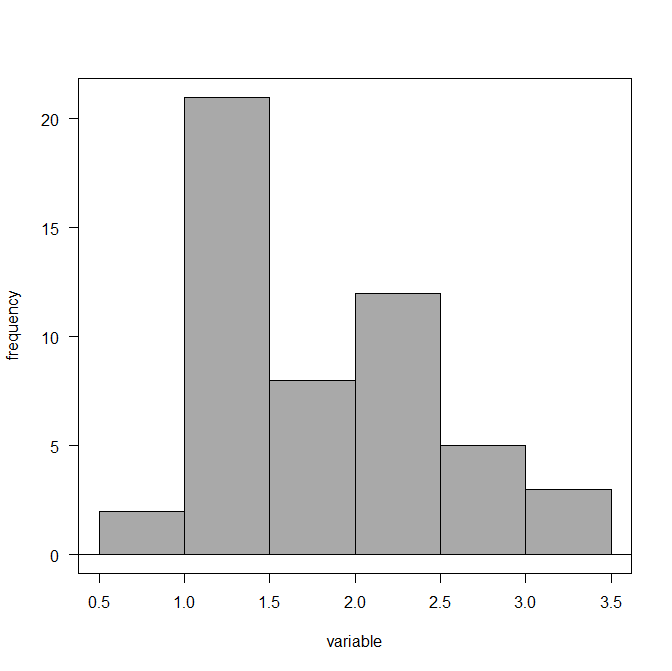Question
1. 1. what are the strengths of the project below? 2. What are the weaknesses of the project below? Abstract Does knowing a colleague's political
1.
1. what are the strengths of the project below?
2. What are the weaknesses of the project below?
Abstract
Does knowing a colleague's political position influence workplace communication? We were interested in knowing how the intense emotions of today's hot-button issues impact communication in the workplace. Does workplace activism creat a hostile work environment? Can people work well together when they stand on opposing sides of the important issues of today?
We took a convenience sample by posting to Facebook and asking friends and relatives to complete the survey. 51 people responded. The outcome or 'dependent' variable of the research question is "freedom of expression" or the comfort one feels expressing their views and beliefs in alignment with company policies. What we found was that the population surveyed does not feel one way or the other about whether knowing a colleague's political position influences workplace communication.
Researching Communication in the Workplace
We hypothesized that people would feel that knowing someone's political views would influence workplace communication. Provided a person works a full time work schedule, they are spending close to a third of their day at the workplace. This means that the quality of the communication in the workplace can have a great impact on the overall quality of an employees life. Part of workplace communication is the feeling that you have the freedom to express yourself and express your opinions, and whether or not those opinions will be respected by others in that workplace community. This research seeks to better understand the workplace environments we creat, and how people feel that they are able to communicate with each other within those environments. People who work with others are the people we are focused on researching.
Method
Measures
We had one quantitative variable and used the single sample t-test to estimate a single population mean.
See The Appendix for scales
Our scales were developed by identifying the positive and negative statements associated with communication in the workplace and comfort level of expressing oneself politically in the workforce as well. We each made a list of questions related to the subject and worked together to determine which would be most suitable for our research. We determined together which would be most appropriate to "flip" and ask in the negative sense.
Participants
We posted the survey on Facebook and asked friends and family to complete. We collected 51 responses.
Demographics:
# counts for Age.Group
18-24 25-34 35-44 45-54 55-64 65 and older
4 8 22 5 8 4
# percentages for Age.Group
18-24 25-34 35-44 45-54 55-64 65 and older
7.84 15.69 43.14 9.80 15.69 7.84
# counts for Education.Level
Associates degree or equivalent professional certificate
23
Bachelor's degree or equivalent professional certificate
10
Doctorate
1
High school diploma or equivalent
14
High school diploma or equivalent;Associates degree or equivalent professional certificate
1
Master's degree
2
# percentages for Education.Level
Associates degree or equivalent professional certificate
45.10
Bachelor's degree or equivalent professional certificate
19.61
Doctorate
1.96
High school diploma or equivalent
27.45
High school diploma or equivalent;Associates degree or equivalent professional certificate
1.96
Master's degree
3.92
# counts for Ethnicity
Black/African American Hispanic/Latino Other Prefer not to say White/Caucasian
1 3 1 2 44
# percentages for Ethnicity
Black/African American Hispanic/Latino Other Prefer not to say White/Caucasian
1.96 5.88 1.96 3.92 86.27
# counts for Income.Level
$100k to $150k $10k to $50k $50k to $100k Below $10k Below
9 18 19 1
Over $150k
3
$100k to $150k $10k to $50k $50k to $100k Below $10k Below $10k;Over $150k
17.65 35.29 37.25 1.96 1.96
Over $150k
5.88
Analysis Plan
The single variable we had was a person's comfort with knowing political views of colleagues in the workplace.
Our variable is quantitative because we are measuring on a scale of 0-4.
We will use a single sample t-test with tails. We tested if mu is neutral (2).
Results
Descriptive statistics: X bar = 1.8655, s = .6558, n = 51

Step by Step Solution
There are 3 Steps involved in it
Step: 1

Get Instant Access to Expert-Tailored Solutions
See step-by-step solutions with expert insights and AI powered tools for academic success
Step: 2

Step: 3

Ace Your Homework with AI
Get the answers you need in no time with our AI-driven, step-by-step assistance
Get Started


